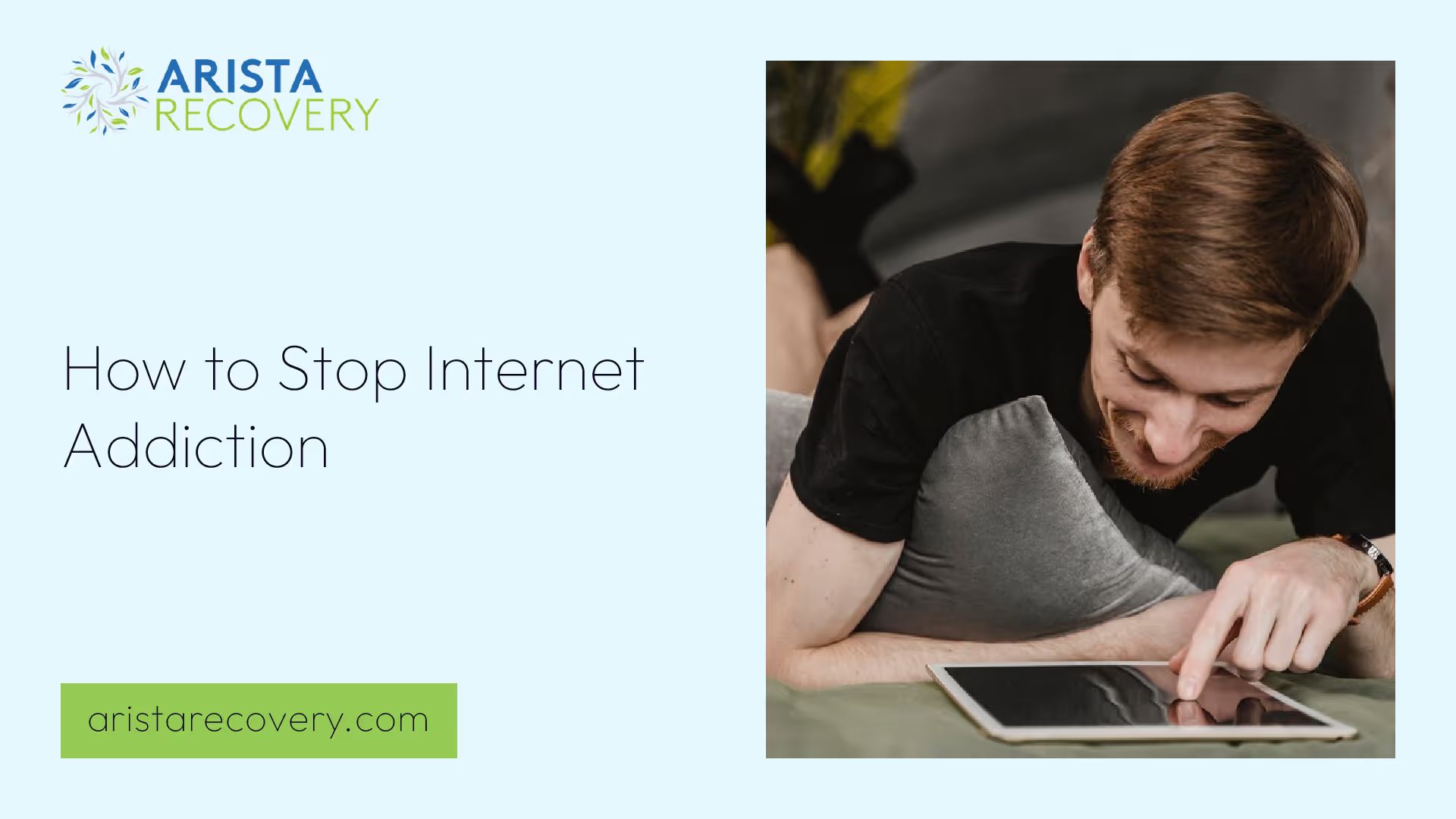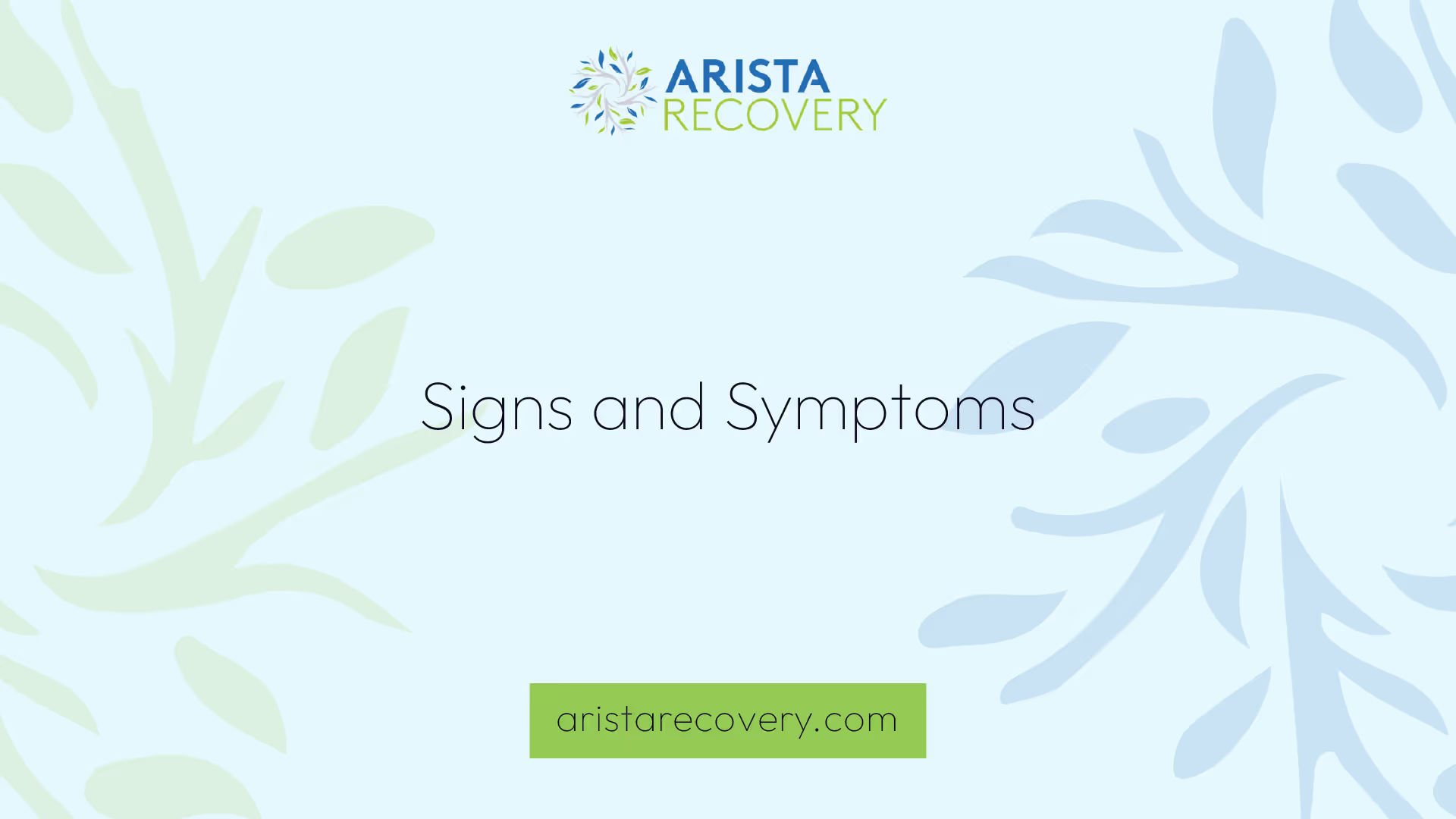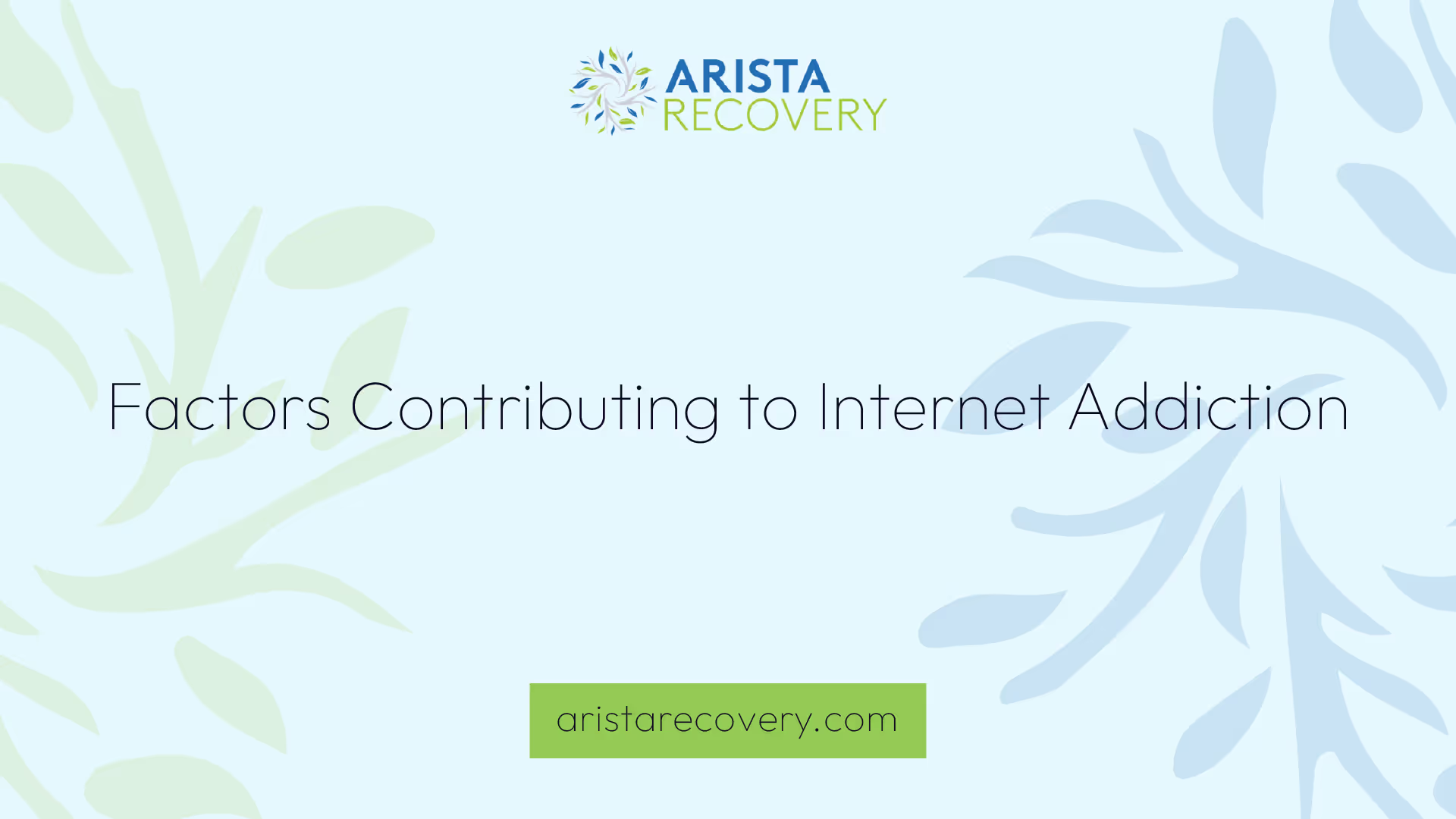
How to Stop Internet Addiction

Understanding Internet Addiction
Prevalence of Internet Addiction
Internet addiction is a growing concern worldwide, particularly among young Internet users. Studies have shown that a significant percentage of youths suffer from the adverse effects of this addiction. For instance, during the first wave of the COVID-19 pandemic in 2020, research indicated that mild internet addiction was found in 27.2% of Czech and 27.0% of Slovak students. Moreover, moderate internet addiction was identified in 3.4% of Czech students and 6.0% of Slovak students [2].
Psychiatrists and psychologists need to be aware of the mental health issues caused by internet addiction, as a substantial number of youths are affected [3].
Impact of Internet Addiction
Internet addiction can have far-reaching negative consequences if not diagnosed and managed effectively. Technology addiction, including internet addiction, has been linked to various psychological, behavioral, and cognitive issues [1]. Left untreated, internet addiction can adversely affect multiple facets of life, from personal relationships to academic and professional performance. However, seeking professional help can alleviate or even prevent these negative effects [4].
The detrimental impact of internet addiction underscores the importance of identifying and addressing this issue promptly. For more information on managing various types of addictions, such as how to stop food addiction and how to stop spending addiction, visit our related articles.

Signs and Symptoms
Internet addiction can manifest through a variety of physical and emotional indicators. Recognizing these signs is crucial for understanding how to stop internet addiction.
Physical Signs of Internet Addiction
Several physical symptoms are commonly associated with internet addiction disorder. These symptoms can have a significant impact on an individual's overall health and well-being.
These symptoms can be severe and lead to long-term health issues if not addressed.
Emotional Signs of Internet Addiction
Emotional symptoms are equally significant and can affect an individual's mental health and social interactions.
These emotional symptoms can lead to long-term psychological issues, including depression, anxiety, and loneliness [3].
Recognizing these signs is the first step toward managing and ultimately overcoming internet addiction. Understanding the severity of the symptoms can help in seeking appropriate treatment and support. For further information on managing addiction, you can explore other resources like how to stop spending addiction and how to stop my sugar addiction.

Factors Contributing to Internet Addiction
Understanding the factors that contribute to internet addiction is essential for addressing and managing this growing issue. Internet addiction is influenced by a variety of psychological and social factors.
Psychological Factors
Psychological factors play a significant role in the development of internet addiction. Individuals with pre-existing mental health conditions, such as depression or anxiety, are more susceptible to developing an addiction to the internet. The secluded behavior often associated with excessive internet use can exacerbate symptoms of these conditions, leading to a vicious cycle of increased internet use and deteriorating mental health.
Some key psychological factors include:
- Mental Health Conditions: Those with depression, anxiety, or other mental health issues may turn to the internet as a coping mechanism.
- Low Self-Esteem: Individuals with low self-esteem may seek validation and social interaction online, which can lead to excessive use.
- Escapism: The internet provides an easy escape from real-life problems, making it attractive for individuals dealing with stress or dissatisfaction in their personal lives.
- Reward Mechanisms: The instant gratification from online activities like social media, gaming, and browsing can create a reward loop, making it hard to limit usage.
Social Factors
Social factors also contribute significantly to internet addiction. Cultural differences can affect how internet addiction is diagnosed and treated, emphasizing the need for a clear understanding of its characteristics in different cultures [1].
Key social factors include:
- Peer Pressure: Social circles that heavily engage in online activities can influence individuals to spend more time on the internet.
- Lack of Social Support: Individuals who lack strong social support systems in real life may turn to online communities for interaction and support.
- Cultural Norms: In some cultures, heavy internet use is more accepted or even encouraged, making it easier for individuals to develop addictive behaviors.
- Availability of Technology: Easy access to the internet and digital devices increases the likelihood of overuse.
By understanding these psychological and social factors, individuals and families can better address and manage internet addiction. Professional help and effective strategies can mitigate the negative impact of these factors. For more information on managing and preventing internet addiction, explore our resources on how to stop food addiction, how to stop spending addiction, and how to stop my sugar addiction.
Treatment Approaches
When addressing how to stop internet addiction, various treatment approaches can be effective. Here, we will explore two primary methods: Cognitive-Behavioral Therapy (CBT) and Medication along with Electro-acupuncture (EA).
Cognitive-Behavioral Therapy (CBT)
Cognitive-Behavioral Therapy (CBT) is a widely used psychotherapeutic intervention for treating internet addiction. This approach focuses on identifying and changing negative thought patterns and behaviors that contribute to addictive behaviors. CBT has been shown to be effective in reducing symptoms of internet addiction, internet gaming disorder, and unspecified internet use disorders [5].
CBT typically involves:
- Cognitive Restructuring: Identifying and challenging irrational beliefs and thoughts.
- Behavioral Activation: Encouraging participation in non-internet-related activities.
- Skills Training: Developing coping strategies and problem-solving skills.
Studies have indicated that CBT can have moderate to large effect sizes in reducing internet addiction symptoms. For more information on CBT and other therapeutic approaches, you can refer to our related article on how to stop spending addiction.
Medication and Electro-acupuncture (EA)
In addition to psychotherapeutic approaches, medication and electro-acupuncture (EA) are alternative treatment methods that have shown promise in managing internet addiction.
Medication
Medication can be used to address underlying mental health issues that may contribute to internet addiction, such as anxiety or depression. While medication alone is not typically the primary treatment for internet addiction, it can be a valuable component of a comprehensive treatment plan.
Electro-acupuncture (EA)
Electro-acupuncture (EA) is another innovative approach. EA involves the application of electrical stimulation to acupuncture points, which can help in reducing symptoms of internet addiction. Studies suggest that EA, combined with other therapeutic interventions, can effectively improve overall well-being [5].
Both medication and EA offer alternative options for those who may not respond to traditional psychotherapeutic approaches. For more insights on managing various types of addictions, you may explore our articles on how to stop my sugar addiction and how to stop soda addiction.
Managing Internet Addiction
Effectively managing internet addiction requires a multifaceted approach, particularly for families impacted by this issue. Two key strategies include parental supervision and support, as well as setting limits and boundaries.
Parental Supervision and Support
Parental supervision plays a crucial role in helping teens manage internet addiction. By actively monitoring and regulating their online activities, parents can ensure a balanced approach to internet usage. One effective method is using apps like Screen Time Parental Control®, which can help track and set limits on the time spent online.
Some key steps parents can take include:
- Monitoring online activities: Regularly check the websites and apps that your child uses.
- Setting daily limits: Define how much time your child can spend online each day.
- Encouraging offline activities: Promote hobbies and interests that do not involve screens, such as sports or creative arts.
Parental involvement is essential not only for managing internet use but also for improving real-life relationships and social skills, which can be negatively impacted by excessive internet usage [6]. For more resources on managing various types of addiction, you can visit our articles on how to stop food addiction and how to stop spending addiction.
Setting Limits and Boundaries
Setting clear limits and boundaries is another effective approach to managing internet addiction. Establishing rules around internet usage helps create a structured environment that discourages excessive screen time.
Here are some strategies for setting limits and boundaries:
- Designate Screen-Free Zones: Create specific areas in the home where internet use is not allowed, such as the dining room or bedrooms.
- Set Timers: Use devices or apps to set timers that limit the duration of internet sessions.
- Implement a Schedule: Establish a daily routine that includes designated times for internet use, as well as times for other activities.
These strategies can help individuals and families better manage their internet usage and mitigate the risks associated with internet addiction.
For additional tips on managing various forms of addiction, you can explore our articles on how to stop my sugar addiction and how to stop soda addiction.
Preventing Internet Addiction
Effective prevention of internet addiction involves identifying potential risk factors and promoting healthy online habits. Understanding these aspects can help individuals and families mitigate the chances of developing addictive behaviors related to internet use.
Identifying Risk Factors
Several risk factors can contribute to the development of internet addiction. Recognizing these can help in taking preventive measures.
- Psychological Factors: Individuals with pre-existing mental health conditions such as depression or anxiety are more susceptible to internet addiction. The isolated behavior associated with excessive internet use can exacerbate symptoms of these conditions.
- Social Factors: Social isolation and lack of strong family or peer connections can increase the likelihood of turning to the internet for companionship and validation. This can lead to compulsive online behavior.
- Behavioral Factors: Those with other addictive behaviors, such as gambling or shopping, may also be more prone to developing an internet addiction. The internet offers easy access to these activities, making it a convenient outlet for addictive behaviors.
- Demographic Factors: Young internet users are particularly at risk, with internet addiction found to be prevalent among this group globally.
Promoting Healthy Online Habits
Promoting healthy online habits is crucial to prevent internet addiction. Here are some strategies to foster a balanced relationship with the internet:
- Setting Limits: Establish clear boundaries for internet use, such as limiting screen time and designating specific times for online activities. This helps prevent excessive use and encourages engagement in offline activities.
- Encouraging Offline Activities: Promote participation in hobbies, sports, and social activities that do not involve screens. This helps in developing a balanced lifestyle and reduces reliance on the internet for entertainment and social interaction.
- Parental Supervision: For younger users, parental supervision and involvement are essential. Parents should be aware of their children's online activities and guide them towards healthy internet use. For more tips, visit our section on parental supervision and support.
- Education and Awareness: Educate individuals about the potential risks of excessive internet use and the importance of maintaining a healthy balance. Awareness campaigns and discussions can play a significant role in preventing addiction.
- Implementing Tech Tools: Utilize technology to set up internet usage controls, such as app timers and website blockers. These tools can help manage and monitor internet use effectively.
For more comprehensive strategies and tips, refer to our guide on how to stop spending addiction.
By identifying risk factors and promoting healthy online habits, individuals and families can reduce the risk of internet addiction and foster a healthier relationship with technology.
References
[1]: https://www.sciencedirect.com/science/article/abs/pii/S1567422316300059
[2]: https://www.ncbi.nlm.nih.gov/pmc/articles/PMC9260220/
[3]: https://www.ncbi.nlm.nih.gov/pmc/articles/PMC3214398/
[4]: https://www.priorygroup.com/addiction-treatment/internet-addiction-treatment
[5]: https://www.ncbi.nlm.nih.gov/pmc/articles/PMC10179495/
[6]: https://www.massgeneral.org/children/internet-addiction
When mental health challenges and addiction intersect, it can feel isolating. At Arista, we offer compassionate, evidence-based, and trauma-informed care to help you heal, grow, and move forward.
You’re not alone in this.
When mental health challenges and addiction intersect, it can feel isolating. At Arista, we offer compassionate, evidence-based, and trauma-informed care to help you heal, grow, and move forward.
Support that moves with you.
You’ve taken a brave first step. At Arista Recovery, we’re here to help you continue with best-in-class care designed for long-term healing and support.
.webp)






